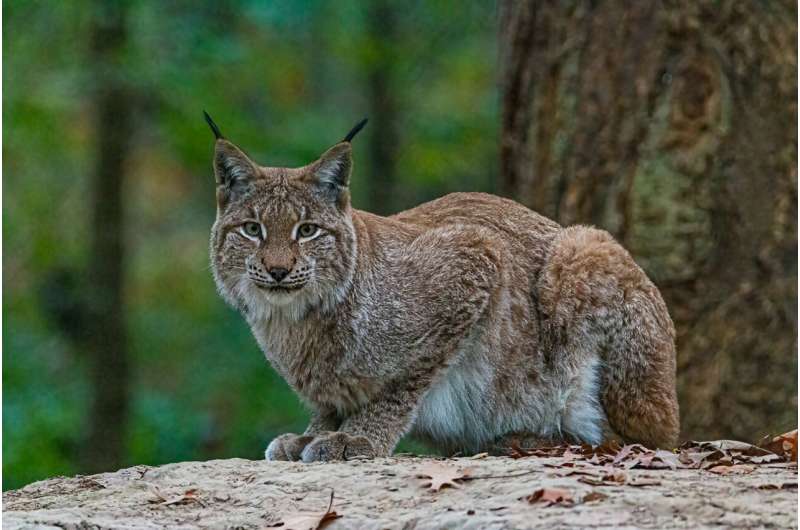This article has been reviewed according to Science X's editorial process and policies. Editors have highlighted the following attributes while ensuring the content's credibility:
fact-checked
trusted source
proofread
Researcher says farmers' perspectives need to be considered when reintroducing lynx and wolves

A researcher from Queen's University Belfast says farmers need to be listened to in the debate about reintroducing lynx and wolves to Britain and Ireland, centuries after they disappeared.
Queen's researcher and conservationist Dr. Jonny Hanson recently published his findings entitled "Large carnivore reintroductions to Britain and Ireland: farmers' perspectives and management options," as a Nuffield Farming report.
The report found that farmers were concerned about post-Brexit political and economic uncertainty, priorities and funding for agri-environmental schemes, management tools for coexistence with large carnivores (deterrence, finance, force, enterprise), and governance elements like guidelines and consultations.
Dr. Hanson, research fellow from the School of Social Sciences, Education and Social Sciences at Queen's said, "The strategic context for potential large carnivore reintroductions to Britain and Ireland is currently extremely challenging. For this and other reasons, the return of apex predators to our landscapes are likely to be complex, contested and costly affairs."
An application for a trial reintroduction of lynx in England was declined in 2018, but interest remains with discussions ongoing in England and Scotland. Successful reintroductions of non-carnivore species, like beavers and sea eagles, suggest the idea is growing in popularity and ambition. However, despite potential social, economic, and environmental benefits, reintroducing large carnivores could pose significant challenges and costs, particularly impacting livestock farmers.
Other key findings
- When large carnivores return to a landscape, the challenges of achieving coexistence between these species and livestock farming are considerable.
- Farmers in Britain and Ireland are opposed both to the return of apex predators in general, as well as to most of the management tools which could be used to facilitate coexistence.
- There is some consensus between farmers and rewilders on the importance of good governance, such as frameworks, guidelines, licensing, consultations and working groups.
- There are wide gaps in the knowledge base relating to this topic, such as the costs of training and equipping farmers to adapt their farming practices to deter lynx or wolves.
- Greater representation of experts in the social sciences and humanities on reintroduction panels and working groups is essential.
Dr. Hanson said, "Much greater levels of research and consultation, especially with livestock farmers, are necessary to weigh up the delicate balance of pros and cons in this debate. Only then can the questions of could and should we reintroduce these species be properly answered."
More information: Large carnivore reintroductions to Britain and Ireland: farmers' perspectives and management options. www.nuffieldscholar.org/report … ers-perspectives-and
Provided by Queen's University Belfast





















